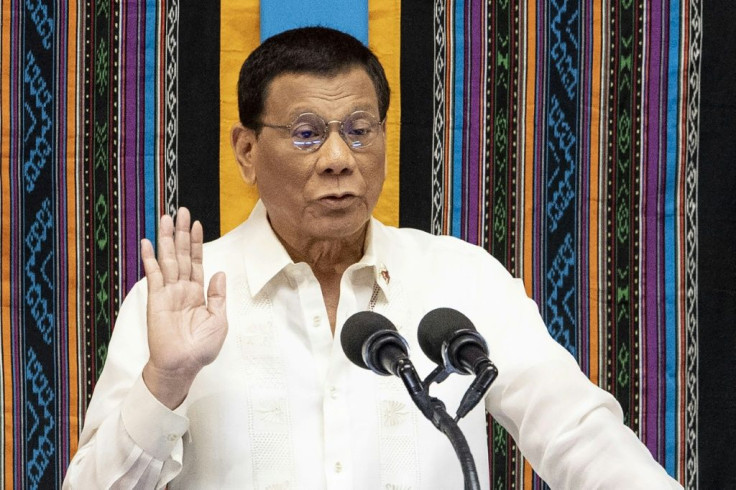America's Popularity Among Filipinos Rises, Despite Duterte's South China Sea Flip-Flops
America enjoys strong approval as a global leader among Filipinos, despite President Rodrigo Duterte's South China Sea flip-flops, which soured relations between the two countries.
That's according to the latest 2021 Gallup report, which finds that 71% of Filipinos approve of America's global leadership, up from 64% in 2016. It's the second-highest ranking America received among all countries that were included in the report.
There was a time when the Philippines and America were close allies seeking to tame China's South China Sea ambitions and keep the South China Sea an open sea. Before Duterte became president, the Philippines filed arbitral proceedings against China, challenging its "maritime entitlements."
Manila sought to halt Beijing's activities in the South China Sea, which China views as its sea, all of it. And it has repeatedly made it clear that it is prepared to do whatever it takes to proclaim control over every tiny island, natural and artificial, in it.
The situation between the two allies changed when Duterte became president of the Philippines and the Arbitral Tribunal ruled in favor of the Philippines, meaning that China has no historic title over the waters of the South China Sea. That was a significant victory for the Philippines, which filed the proceedings, and the U.S., which wants the South China Sea to be open.
Initially, the ruling brought the two allies closer, with Duterte sending a stark message to China: stay away from our territory or else face the possibility of a "bloody" confrontation.

Then came the first flop, which set the two sides apart: Duterte changed his mind, siding with China in the dispute, and sought a "divorce" from the U.S.
Apparently, Beijing offered Manila a couple of promises. One of them was the promise to finance Duterte's "Build, Build, Build" initiative, as evidenced by the big jump in Chinese investments in 2018, which top the list of foreign investments for that year.
"Build, Build, Build" is at the core of Duterte's economic growth plan, as the country tries to improve productivity, lower transportation costs and increase international competitiveness.
A few months later came the second flop, when Duterte changed his mind again, telling the world that he didn't want to abandon the U.S. military alliance.
And then came the third flop when he called China a "friend" in the South China Sea disputes, reiterating the position that the Philippines should seek a "divorce" from the U.S.
Duterte's flip-flops didn't stop China's South China Sea aggression. Instead, it heightened, as evidenced by Beijing's repeated challenges to the Philippines' sovereignty.
China continues to assert its control over Thitu island, also known as Pag-asa island in the Philippines. And that renews the prospect of war between the two nations.
America has assured the Philippines that it would come to its defense if it comes under attack in the South China Sea.
According to reports in early March of 2019, Washington reaffirmed a defense code that Manila has sought to revise. Also, it's something that policy experts, like Ely Ratner of the Center for American Security, have been advocating for quite some time. He has been calling for America to abandon its neutrality in the region by supplementing diplomacy with military assurances.
America's assurance has lifted a significant obstacle in relations between Washington and Manila. That seems to have appeased two former Filipino officials who filed a complaint with the International Criminal Court (ICC) over China's aggression in the disputed South China Sea.
And it must have appeased public opinion. Thus, the rise in the number of Filipinos who approve of America's global leadership.
© Copyright IBTimes 2024. All rights reserved.






















